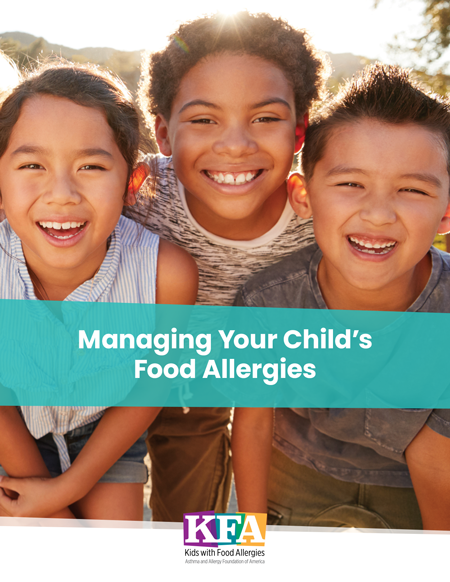Living with Food Allergies

Natural Flavors, Spices, and Food Allergies
If you have food allergies, do you need to be concerned about natural flavors and spices? Here is some information you need to know.
Natural Flavors and Food Allergy
The terms “natural flavor” or “natural flavoring” are common terms used on food labels. Food makers use the terms to specify plant or animal-based ingredients which are used to add flavor but do not have nutritional value.
According to the Food and Drug Administration (FDA), natural flavor or flavoring may come from:1
- Spices
- Fruit or fruit juice
- Vegetable or vegetable juice
- Edible yeast
- Herb
- Bark
- Bud
- Root
- Leaf or similar plant material
- Meat
- Seafood
- Poultry
- Eggs
- Dairy products
Under the Food Allergen Labeling and Consumer Protection Act (FALCPA) and the Food Allergy Safety, Treatment, Education, and Research (FASTER) Act of 2020, food manufacturers must note the nine major allergens on labels, even if they are in the natural flavors. This includes milk, egg, peanut, tree nut, wheat, sesame, soy, fish, and crustacean shellfish.
If the natural flavoring contains one of the nine major allergens, you will see the name of the major allergen within the list of ingredients. For example, the label may say, “natural flavoring (soy)” or “Contains: soy.”
If you manage an allergy to food that is not considered a major food allergen by the FDA, you will have to be more careful with foods that list natural flavors. If a food has natural flavors listed on the ingredient label, check with the manufacturer to be sure that food is safe for you or your child to eat.
Spices and Food Allergy
Spices can often be hidden in foods. And they aren’t always individually listed on food labels. Should you be concerned about a spice allergy? Probably not. A true spice allergy is rare.
According to the FDA, spices are defined as, “Aromatic vegetable substances, in the whole, broken, or ground form, whose significant function in food is seasoning rather than nutrition.”2 Here are some of the spices Kids with Food Allergies (KFA) gets asked about the most:
- Cinnamon – spice from the inner bark of the Cinnamomum tree
- Nutmeg – seed of an evergreen tree
- Mace – lacy outer coating of the nutmeg seed
- Cardamom (black and green) – seeds from the cardamom plant, which is related to ginger and turmeric
- Allspice – berries from a tropical plant
- Star anise – seed pod from the fruit of an evergreen tree
- Cloves – flower bud of an evergreen tree
While it is possible for some people to be allergic to a spice, a true allergy to one of these spices is rare.3
What Are Common Reactions to Spices?
Most reactions to spices are not caused by an allergic reaction. Non-allergic reactions to spices can include:
- Rash – Spices may cause a rash where it touches your skin.
- Coughing or irritation of your airways – Spices are usually ground up into fine powders. If you inhale them, they may irritate your throat or airways, causing coughing. If you have asthma, inhaling ground spices may trigger asthma symptoms.
- Pollen food allergy syndrome (PFAS) (also called oral allergy syndrome) – If you get an itchy mouth or throat after eating certain spices, it may be related to a pollen allergy. PFAS is a type of food allergy. It may happen when your immune system confuses the spice with the pollen of certain plants. But in this case, the reaction may be caused by the pollen allergy – not an allergy to the spice. Some of the most common spices known to cause OAS reactions are:4
- Anise
- Celery
- Coriander
- Cumin
- Fennel
- Parsley
Sesame allergy is one of the most common food allergies in the United States. Sesame is a seed, but it is common in spice blends. A sesame allergy can cause anaphylaxis. If you have a sesame allergy, read labels carefully on spice blends. Until 2023, sesame does not need to be clearly labeled on packaged foods in the United States. If you have been diagnosed with sesame allergy, talk with your allergist about the need to avoid undeclared labels and the risk for reaction from various wording such as “spices.”
Should I Avoid Certain Spices If I’m Allergic to Tree Nuts?
If you have a tree nut allergy, you may wonder if you should avoid certain spices such as cinnamon or nutmeg. Cinnamon and nutmeg do not come from nuts, so if you have a tree nut allergy, these spices should be safe to eat.
Even though nutmeg sounds like it could be a tree nut, it is not a nut.5 Nutmeg is actually a seed that is dried and then ground into powder form.
Cinnamon is a tree bark that is dried and rolled into sticks or ground into a powder. But cinnamon can irritate your skin and may cause a rash if it touches your skin. But this is usually not due to an allergic reaction.
If you have reactions to spices, talk with your doctor to figure out the cause.
Medical Review: December 2022 by John James, MD
References
1. CFR – Code of Federal Regulations Title 21. (2022, July 22). Food and Drug Administration. https://www.accessdata.fda.gov/scripts/cdrh/cfdocs/cfcfr/cfrsearch.cfm?fr=101.22
2. Affairs, O. of R. (n.d.). CPG SEC 525.750 spices – definitions. U.S. Food and Drug Administration. Retrieved November 19, 2021, from https://www.fda.gov/regulatory-information/search-fda-guidance-documents/cpg-sec-525750-spices-definitions.
3. Can spices cause allergic reactions? American Academy of Allergy Asthma & Immunology. (n.d.). Retrieved December 17, 2021, from https://www.aaaai.org/tools-for-the-public/conditions-library/allergies/can-spices-cause-allergic-reactions
4. University of Nebraska – Lincoln. (2014, March 10). Allergenic Foods and Their Allergens, Spices and Herbs. Institute of Agriculture and Natural Resources, Food Allergy Research and Resource Program. Retrieved November 19, 2021, from https://farrp.unl.edu/informallspicesherbs.
5. Everything You Need to Know About Tree Nut Allergy. American Academy of Allergy Asthma & Immunology. (n.d.). Retrieved November 19, 2021, from https://www.aaaai.org/tools-for-the-public/conditions-library/allergies/everything-you-need-to-know-about-tree-nut-allergy.














